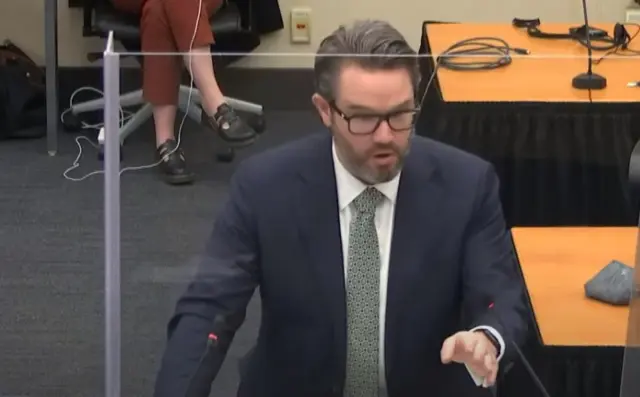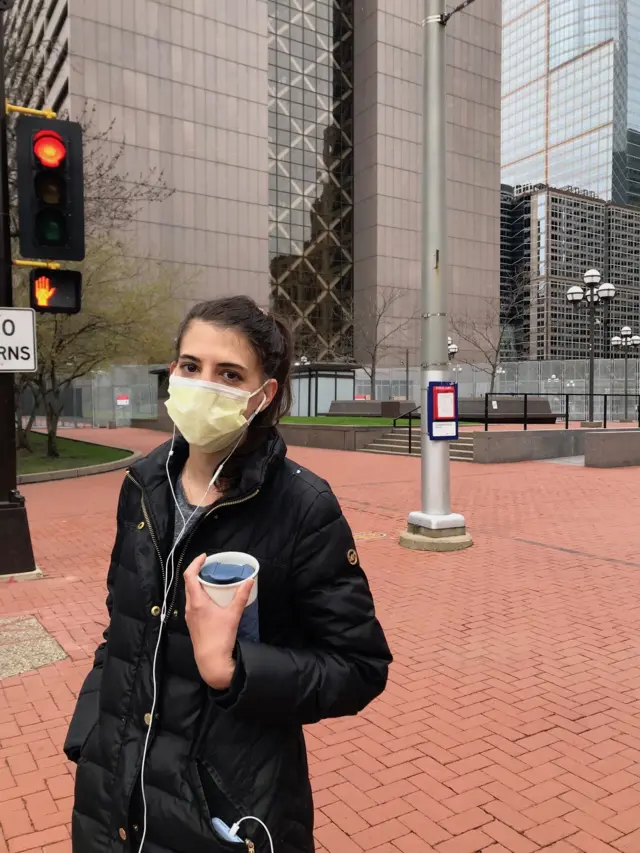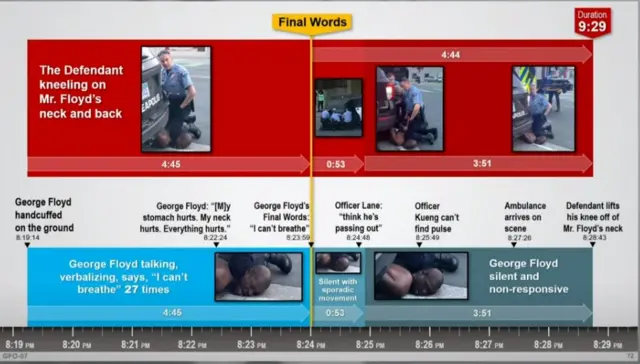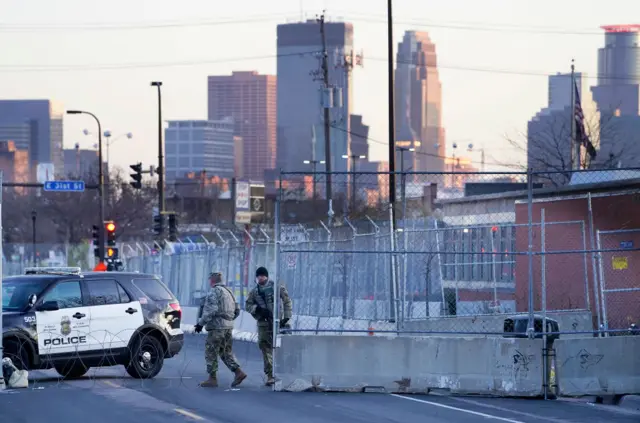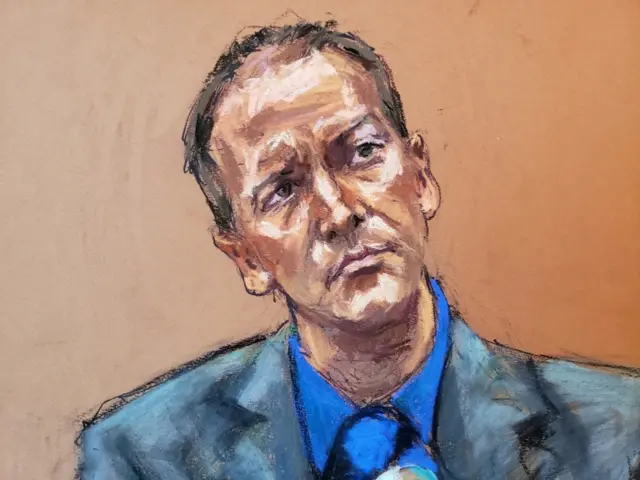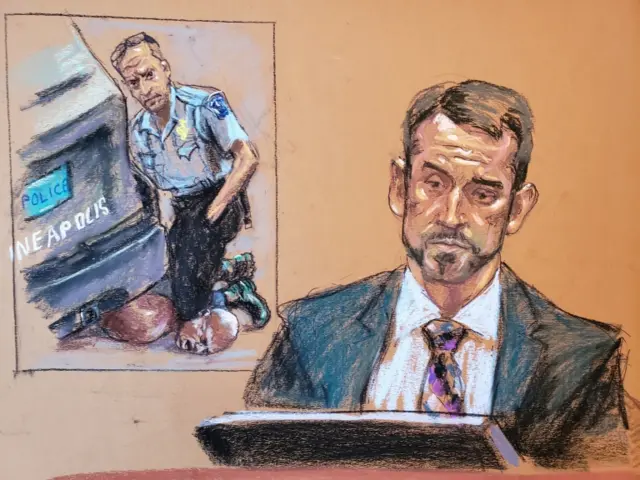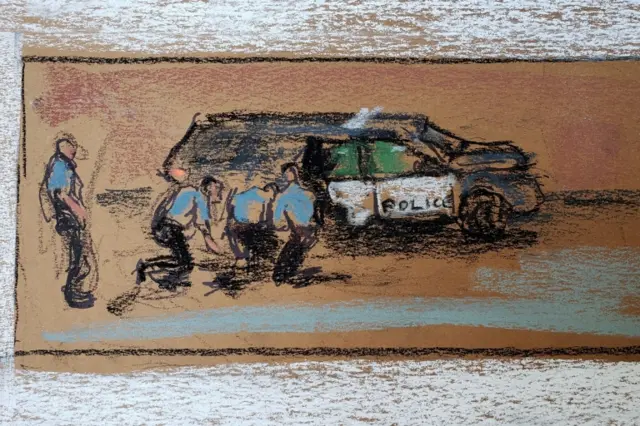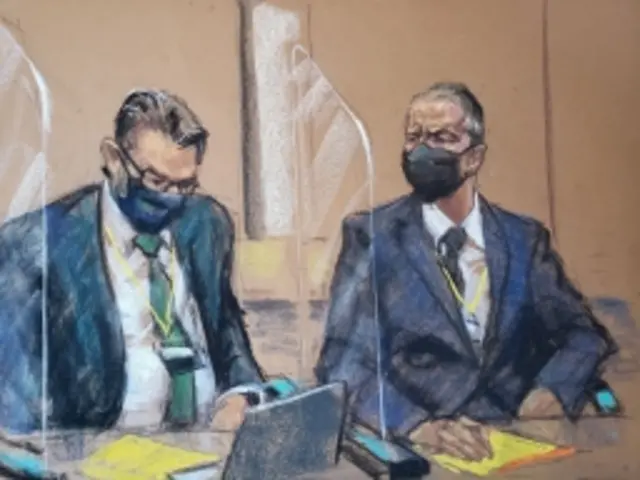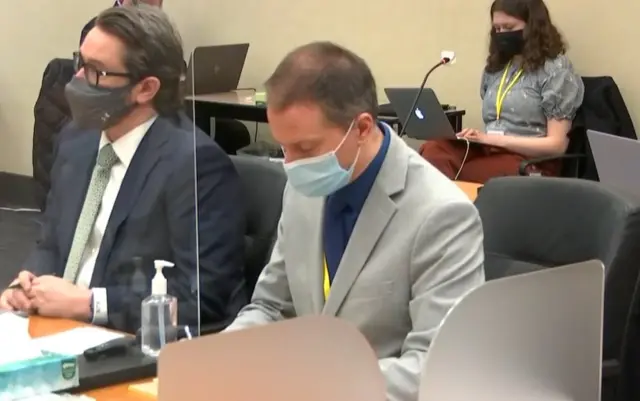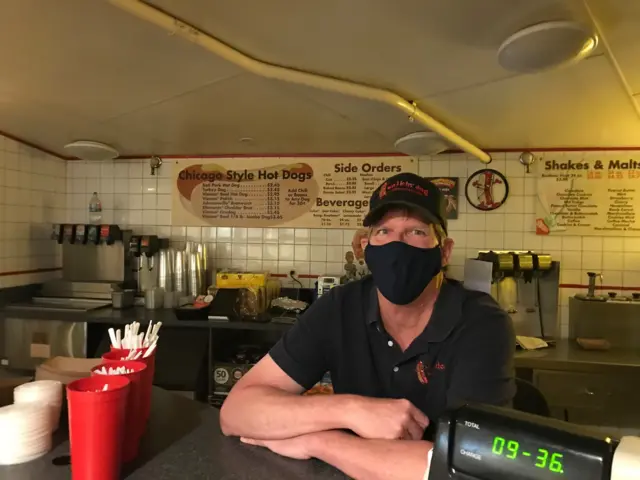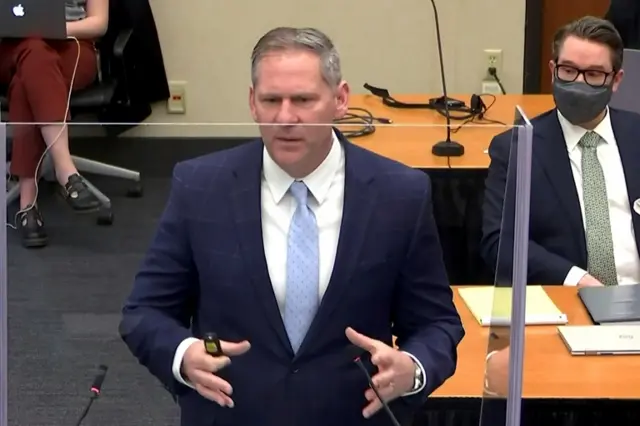Defence: Chauvin was in 'a dynamic and fluid situation'published at 18:09 BST 19 April 2021
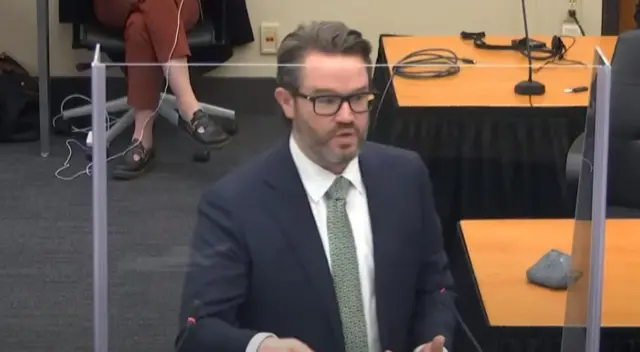 Image source, Court TV
Image source, Court TVThe defence is now touching on one of its main arguments: that you cannot judge a police officer's actions from afar.
It is important to consider "the totality of the facts and circumstances" as well as "the officer's own subjective state of mind", says Eric Nelson.
"The standard is not what should the officer have done, or what could the officer have done," he notes.
Officers take into consideration things "you and I don't think about", he tells the jury, including knowledge of the scene and how best to keep it secure.
A reasonable officer wants to keep the suspect, civilians and colleagues safe, Nelson says, but new information and observations create "a dynamic, ever-changing situation" that can change in an instant.
